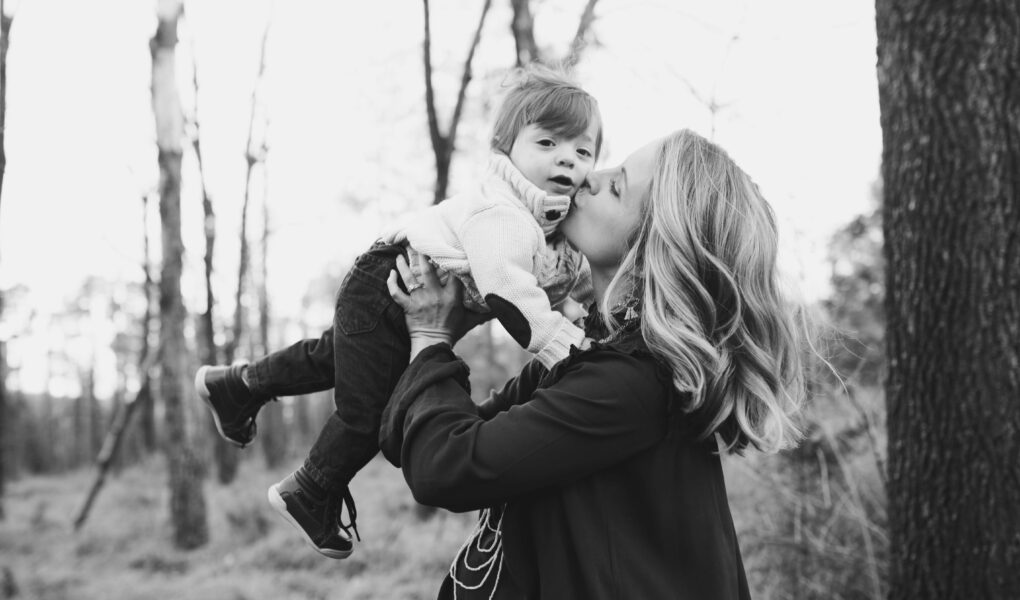The Pillars of Life: Family and Relationships
Family and relationships are at the core of human experience. They shape who we are, provide us with love, support, and a sense of belonging. Whether it’s the family we’re born into or the relationships we build over time, the people around us influence our lives profoundly. This blog explores the intricacies of family and relationships, examining how they evolve, the challenges they present, and the role they play in shaping our identity and emotional well-being.
Understanding Family Dynamics
At its heart, family is our first social experience. The family unit typically consists of parents, siblings, grandparents, and extended family members who form the foundational support system during childhood. But family today is more diverse than ever before. From nuclear families to single-parent households, same-sex couples, blended families, and chosen families, the concept of family has expanded significantly.
The Role of Family in Early Development
The family is the first social institution children encounter, shaping their understanding of the world. Through daily interactions, family members provide children with emotional, psychological, and social support. Research consistently shows that children who grow up in nurturing environments tend to be more emotionally resilient, confident, and well-adjusted in their adult lives. This sense of belonging forms the bedrock of a child’s self-esteem and sense of identity.
Parents or primary caregivers play a crucial role in modeling relationships. How parents communicate, handle conflict, express love, and maintain boundaries becomes the blueprint children follow in their own lives. Children learn values such as empathy, honesty, respect, and responsibility from their families. Conversely, families with unresolved conflicts, emotional neglect, or instability may pass on those struggles to the next generation, affecting the child’s long-term well-being.
The Evolving Nature of Family
While traditional family structures have long been considered the “norm,” the 21st century has witnessed a seismic shift in what defines a family. Same-sex partnerships, cohabitating couples, and single-parent families have challenged the traditional nuclear model. The changing dynamics reflect societal shifts toward inclusivity, acceptance, and fluidity in gender roles.
Blended Families: Divorce, remarriage, and cohabitation have increased the prevalence of blended families. While this introduces new complexities, such as navigating step-parent relationships, it also offers unique opportunities for growth and new forms of connection. Open communication, mutual respect, and clear boundaries are crucial for these families to thrive.
Chosen Families: For some individuals, the family they are born into may not provide the love and support they need. In these cases, people often turn to “chosen families,” composed of close friends and partners who offer emotional, practical, and spiritual support. These relationships can be equally, if not more, meaningful than traditional family bonds, proving that family is not only about blood relations but also about love, commitment, and shared values.
Key Elements of Healthy Relationships
Family and friendships are sustained by healthy, reciprocal relationships. While romantic partnerships may often take the spotlight, relationships with siblings, parents, friends, and even coworkers play a significant role in our lives.
Communication
Effective communication is the cornerstone of any successful relationship. Whether it’s a simple conversation with a sibling or a difficult talk with a spouse, how we communicate reflects the health of our relationships. Communication is not just about talking, but also listening. Active listening fosters trust and allows individuals to feel heard and valued. Healthy communication means expressing oneself honestly while respecting the other person’s feelings and perspective.
Misunderstandings and conflicts are inevitable, but how they are handled determines the outcome. Constructive communication involves empathy, patience, and a willingness to compromise. Learning how to disagree respectfully without attacking the other person’s character is vital. Rather than viewing conflict as negative, it should be seen as an opportunity for growth and deeper understanding.
Trust
Trust is the foundation of any meaningful relationship. Without trust, relationships become fragile and prone to breakdowns. Trust is built over time, through shared experiences and mutual respect. It involves being reliable, keeping promises, and showing consistency in actions. Broken trust can be difficult to rebuild, but it is not impossible. With open communication, accountability, and patience, damaged trust can be restored.
Boundaries
Establishing and maintaining boundaries is essential for healthy relationships. Boundaries protect individuals’ emotional and physical well-being, helping to avoid feelings of resentment or burnout. Boundaries vary between people; for example, some individuals may be comfortable sharing their innermost thoughts and feelings, while others may need more privacy. Respecting these differences is a sign of mutual respect.
In families, the role of boundaries is especially important. Parents, for example, must maintain a balance between providing guidance and allowing their children the space to grow and make mistakes. Sibling relationships also benefit from boundaries that allow each person to develop their own identity without feeling overshadowed or diminished by the other.
Emotional Support
Relationships are a source of emotional nourishment. In moments of joy, family and friends are there to celebrate with us, and in times of difficulty, they provide a shoulder to lean on. Emotional support is a two-way street, requiring active participation from both parties. It includes showing empathy, offering encouragement, and being present during both the highs and lows of life.
Shared Values and Interests
While opposites may attract in some cases, shared values and interests are often the glue that holds relationships together. Whether it’s in romantic partnerships or friendships, having common goals, interests, and moral beliefs strengthens bonds. These shared aspects allow for meaningful conversations and experiences, deepening the relationship over time.
Navigating Challenges in Family and Relationships
Even in the healthiest of relationships, challenges will arise. Life events such as the death of a loved one, financial difficulties, illness, or job loss can place immense stress on relationships. Family dynamics can also be complicated by unresolved past issues, generational conflicts, or differing worldviews.
Coping with Conflict
Conflict is a natural part of human relationships. What matters most is how conflicts are resolved. Avoiding conflict or pretending everything is fine can lead to built-up resentment and emotional distance. Openly addressing problems, seeking understanding, and finding mutually acceptable solutions create stronger bonds in the long run. Sometimes, seeking outside help, such as family counseling or relationship therapy, can help individuals work through their issues and gain new perspectives.
Dealing with Life Transitions
Major life transitions such as marriage, parenthood, aging, or loss can cause significant shifts in relationships. Adjusting to these changes requires flexibility, patience, and a willingness to adapt. In the case of a new marriage, for example, both partners need to navigate the blending of two separate lives into one. Similarly, becoming parents introduces new dynamics that can strain or strengthen a relationship.
At the other end of life, as parents age and children become caregivers, family roles can reverse. This transition can be emotionally challenging, requiring sensitivity, open communication, and support networks to navigate effectively.
Cultural and Societal Expectations
Family and relationships are often influenced by cultural and societal expectations. Different cultures have varying views on marriage, family structure, gender roles, and the responsibilities of individuals within a family. These cultural influences can sometimes clash, especially in intercultural relationships or families with diverse backgrounds. Understanding and respecting each other’s traditions, values, and beliefs is key to maintaining harmony.
The Role of Technology in Modern Relationships
In today’s digital age, technology plays a significant role in shaping how we form and maintain relationships. Social media, video calls, and messaging apps make it easier to stay connected with family and friends, even across long distances. However, the rise of technology has also introduced new challenges.
Social Media and Relationships
Social media can be both a blessing and a curse for relationships. On the one hand, it allows people to maintain connections, share experiences, and keep up with distant relatives and friends. On the other hand, excessive use of social media can lead to issues like jealousy, comparison, and lack of privacy. Being mindful of how social media influences relationships is crucial to maintaining balance and emotional well-being.
Maintaining Connections in a Digital World
Technology has made it possible to maintain long-distance relationships with greater ease. Video chats and instant messaging can help bridge the gap, but they can’t replace in-person interaction. Making an effort to see loved ones face-to-face, even if only occasionally, is important for nurturing close relationships.
Love in Its Many Forms
At the heart of family and relationships is love. Love exists in many forms—romantic love, familial love, platonic love—and each plays an important role in our overall happiness and fulfillment.
Romantic Love
Romantic relationships can be one of the most intense and fulfilling aspects of life. However, they require effort, patience, and a commitment to growth. Relationships often start with passion and excitement, but over time, they evolve into deeper emotional bonds built on trust, respect, and shared life experiences.
Familial Love
The love between family members is often unconditional and enduring. Despite conflicts, misunderstandings, or differences, the family bond remains a powerful force in most people’s lives. Even in challenging family dynamics, there is often an underlying desire for reconciliation and healing.
Platonic Love
Friendships offer a unique kind of love that can be just as meaningful as romantic or familial relationships. Friends provide emotional support, companionship, and shared experiences that enrich our lives. Unlike family, which is often given, friendships are chosen, making them a testament to mutual respect and shared values.
Conclusion: The Lifelong Impact of Family and Relationships
Family and relationships are the pillars that support us throughout our lives. They provide us with love, security, and a sense of belonging. But they also require effort, patience, and commitment. Whether it’s communicating openly, setting healthy boundaries, or navigating life’s challenges together, the strength of our relationships profoundly influences our emotional well-being.
In a world that is constantly changing, the love and support of family and friends remain constants. They shape who we are and who we become, offering a lifetime of joy

